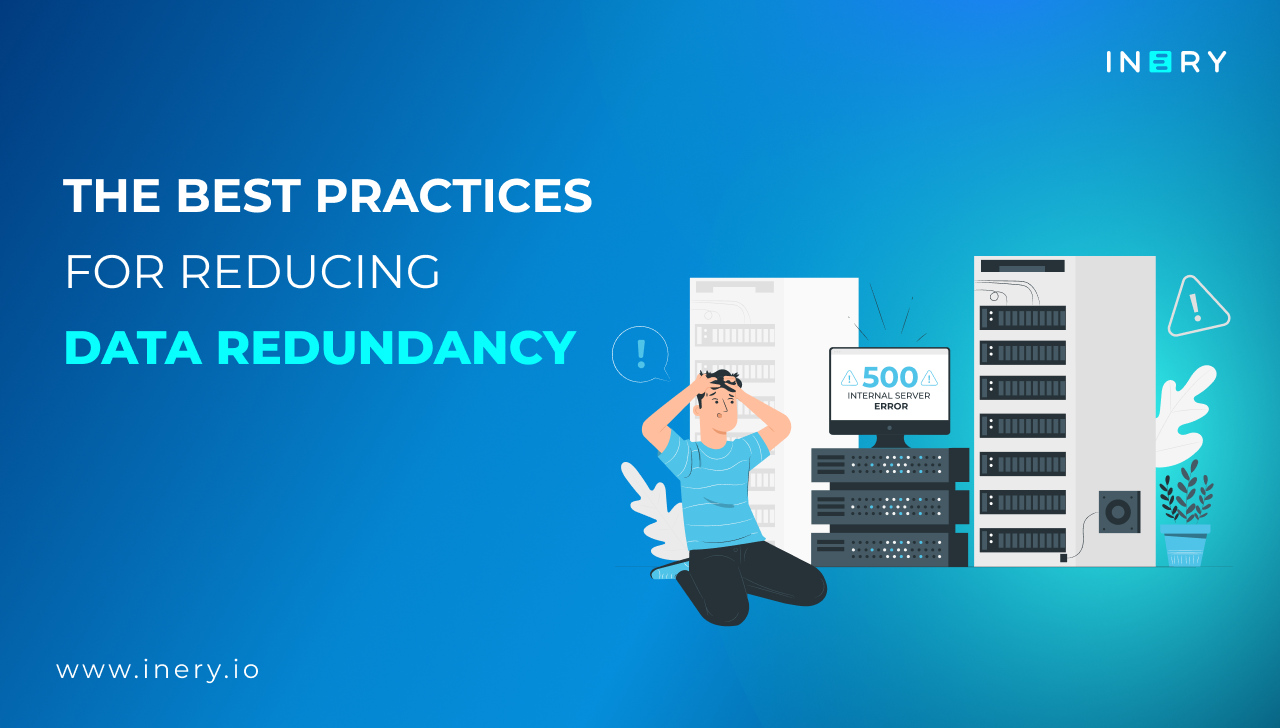Data is the new oil. As far as businesses are concerned, Clive Humby, the mathematician who came up with that quote, was right on the money. Data helps companies drive more value from every decision and better predict the outcome of those decisions. Such a powerful tool is invaluable for improving the bottom line and maintaining a strong influence on the market.
It’s no wonder, then, that companies seek to extract data from every possible source—even you. They plant their metaphorical oil rigs at practically every website you visit. Virtually all smartphones demand that you consent to this data siphoning, so most apps peek into your personal info, too.
As such, you’re in an ecosystem where your every step leaves a data footprint that other entities can track. This interwoven web of data makes it so consenting to share some pieces of data indirectly opts you into sharing other information; info that you didn’t want to be shared.
So how much do the big players in the data market know about you? Should they even be able to keep tabs on you like this? More importantly, is there a way to exercise greater autonomy over your information?
How Many Companies Are Tracking Your Data?
Looking at the numbers, it becomes clear just how desirable your data is. Statistics show that the majority of corporations collect some sort of private information from users. Here’s what percentage of companies collect personal data per region:
- United States: 73%
- EU (excluding the UK): 71%
- Rest of Europe: 69%
- Canada: 59%
- Asia: 56%
- Latin America: 51%
Source: Statista
So, apparently, the majority of businesses across the world take your data.
What the Biggest Corporations Know About You
Let’s take a look at the largest data-centric corporations and how much of your personal information they track. More specifically, we’ll look into Google, Amazon, Apple, and Meta (sources: security.org and Clario).
Unsurprisingly, the majority of the data Google collects has to do with your device and searching activity. It knows about your device type, OS, IP address, system activity, and versions of the apps you use. It also stores data on your online activities like search terms, interaction with ads, page activity (dwell time, frequency of visits, scrolling, etc.), purchasing activities, and more
As far as your personal info goes, Google keeps tabs on your email activity, stored and shared videos, stored documents/spreadsheets, phone number, location (GPS), and more. Google Maps may be the most intrusive of Google apps, tracking around 23% of available data.
Google doesn’t store everything, however. It doesn’t look into your messages, social security number, or driver’s license number, for example.
Amazon
Being a retail empire, Amazon naturally takes plenty of data relevant to online shopping. For the most part, this includes reviews, wishlists, and contact details like phone numbers or usernames. However, it’s also privy to your credit history and social security number.
Regarding device info, Amazon doesn’t hold a candle to Google. It only knows your IP address, OS, and browser type. It does remember your browsing history, though, including searched terms and videos watched.
Interestingly, Amazon doesn’t hold as much of your data as other big retailers. For example, Depop and Nike store more than Amazon.
Apple
Apple isn’t as heavy-handed when it comes to ads. For that reason, it doesn’t collect that much of your data, since the incentive to do so is lower. However, that doesn’t mean it respects your privacy: Apple still collects a lot of info on you.
Apple knows your name, phone number, payment details, address, and the emails you write and get. It also keeps information on your device type and OS, as well as your IP address and web surfing activity like search terms and site dwell time.
Meta
Meta needs access to tons of your personal data so that its products (like Facebook and Instagram) can provide their services. For example, Instagram accesses around 69% of your available data.
Meanwhile, Facebook tracks your on-app activity pretty closely. It’s aware of every time you log in, and it knows your every comment, share, joined group, and message. It also monitors metadata on photos and files you post or share, as well as your phone number and IP address.
Is This Fine?
As the world goes more digital, people become more aware of how important—and lacking—data privacy is. Everything from intrusive ads to data breaches paints a grim picture of today’s lackluster attitude toward digital privacy. Data is powerful, but that power goes both ways: it can also damage us when it’s in the wrong hands.
Moreover, the public now understands that it should get more out of trading its data. If our data is oil, we’re giving away our mineral rights for pennies (not even literally). Meanwhile, businesses are making hand over fist with this information.
What Can Be Done to Stay Private?
By taking certain measures, you can partially protect your data from unwanted eyes. Here are the best practices to boost your digital privacy.
- Use VPNs: this especially applies when on public WiFi!
- Make use of more privacy-conscientious browsers and search engines: for the latter, Brave, Iridium, and Firefox Focus are good picks; meanwhile, DuckDuckGo and StartPage make for good search engines for data privacy
- Create strong passwords: also avoid reusing them between accounts
- Keep apps and software updated: out-of-date software is a major security vulnerability
- Turn off services you aren’t using: if you don’t need location tracking, disable it
- Delete apps and accounts you don’t need: idle apps or accounts may collect data even if you don’t use them
- Read the T&C of services you want: don’t (unknowingly) consent to data tracking you’re uncomfortable with
- Set up privacy settings: adjust account privacy settings on services like Google, Microsoft Windows, Facebook, etc. to minimize how much of your data they get
- Use Web3 services: replace Web2 services with decentralized apps like Osiris Browser or Brave
Is This Truly Enough?
In the current iteration of the Web (i.e, Web2), true data privacy isn’t really possible. You need to give up personal info to even get permission to use online services. As such, there’s no way to access the digital world and not have your identity chipped away at. Data ownership in the truest sense is impossible.
Granted, there are ways to reduce the information you let into the cyber ether. Firstly, you should read the T&C for the service providers. Learn which data a website or app wants to access, and accept or decline accordingly. Moreover, you can make use of VPNs and opt-out options like cookie rejection or privacy preference settings.
Through these steps, you’ll mitigate the amount of your data that ends up in other entities’ hands. However, Web2 has no way to fully protect your private info. This is where the blockchain comes in.
Enter the Blockchain
On the blockchain, every user has a digital wallet that stores their personal data, secured with a private key and encryption. Each transaction is peer-to-peer, meaning there’s no intermediary needed to oversee the process.
Essentially, on the blockchain, only you and the other party have access to the information exchanged. But there’s more. Not only can you choose what data you send, but you can also tokenize that transaction. Then, you’re free to exchange these tokens for fiat money or use them for other transactions on the network.
As a result, the blockchain empowers the individual to claim true ownership over their data.
Inery: a More Data-Conscious Way Forward
For data privacy, Web3 is perhaps the ideal way forward. It touts the principles of decentralization and data ownership to give users control over their digital identity. And Inery is paving the path for a decentralized future where you know who takes your data.
Inery’s layer-1 blockchain database management tool offers a truly decentralized way to ensure data ownership. The Inery blockchain lets you control and monetize the exchange of your personal information. Every transaction is lightning-quick, and security is ensured through cryptography. The affordable yet powerful Inery blockchain has a Self-Delegated Proof of Stake protocol and a throughput of over 10,000 transactions per second, ensuring a safe data superhighway.
So take a quantum data leap with Inery, and enjoy the pure power of decentralization in all its sustainable, highly secure, and cost-effective glory.

Inery•
1 hour ago
The Future of Data Security in Remote or Hybrid Work Environments
Explore the evolution of remote work, its impact on data security, and how companies can safeguard their information in an increasingly hybrid work environment. ...READ MORE
-1721906313.png)
Share

Inery•
9 months ago
The Best Practices for Reducing Data Redundancy
Discover the hidden menace of data redundancy and its impact on efficiency, storage costs, and data integrity in our latest article. ...READ MORE

Share

Inery•
6 months ago
Can Blockchain Level Up The Music Industry?
Uncover the transformative impact of blockchain technology on the music industry, tackling persistent challenges in royalty distribution. Immerse yourself in Inery's innovative approach, offering a glimpse into the future of music royalties. ...READ MORE

Share

Inery•
8 months ago
Overview of the CAP Theorem and the Blockchain
Something is missing in the interplay between the CAP theorem and the blockchain. Where does CAP fall apart? Click here to find out. ...READ MORE

Share
Most popular today



-1701961591.png)